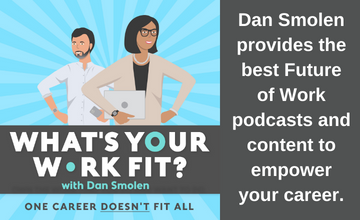Podcast: Play in new window | Download (Duration: 33:32 — 38.4MB)
Stand Up: Comedy Connects Veterans to Beautiful Dreams and Meaningful Work
About this episode:
“It was very interesting to come into a fully formed class that has a clear way of getting you from ‘you think that you are funny?’ to ‘how does that translate on stage for five minutes?’”
– US Army veteran and ASAP comedian Monica Daly
Typical hard-working Americans often do work that becomes devoid of meaning…and good humor. According to the Gallup Organization, 66 percent of the American workforce is not engaged at work: their jobs and management structures change often; work that they do becomes directionless; assignment objectives are vague, and; their workplaces turn toxic causing some people in them to suffer mental, emotional, and physical illness.
Consider that last impact. Can you imagine how difficult the quest for meaningful work must be for active military service members, veterans, military families, and caregivers?
That is why the Armed Services Arts Partnership or ASAP is such a game-changer. This nonprofit organization based in the Washington, DC area uses the arts—and in particular stand up comedy—to empower people to connect with beautiful dreams and meaningful work.
ASAP cultivates community and growth among veterans, service members, military families, and caregivers through the arts. But their real impact is in liberating people from fear, pain, and loss, to get them to a place of joy and empowerment. People who have benefitted from ASAP training and programming use their newfound creativity to confidently express themselves and their purpose, and find greater success and happiness in life and work. ASAP programming is available in the Washington DC metropolitan area as well as in Hampton Roads, Virginia.
To learn more, we sat down with executive director Brian Jenkins at ASAP’s headquarters in Alexandria, Virginia. We also meet with Monica Daly who, along with other veterans, performed a five-minute stand-up comedy set before a live audience at the Workhouse Arts Center in Lorton, Virginia.
During this episode, you will discover:
- Comedian and US Army veteran Dewayne White [starting at 0:01]
- What the Armed Services Arts Partnership is about [starting at 2:41]
- Comedian Monica Daly’s take on ASAP and the benefits that it provides her [starts at 7:22]
- Important research study insight that demonstrates ASAP’s benefits [starts at 15:22]
- What participants may expect during their stand-up comedy training program [starts at 18:22]
- Comedian and US Coast Guard member Noah Miller [starts at 22:28]
- Brian Jenkins’ earliest work dreams and his introduction to ASAP [starts at 23:37]
- Comedian and US Army veteran Claudia Arceo [starts at 29:28]
- Comedian and US Air Force veteran Vinny Lombardi [starts at 30:33]
About our guests:
Brian Jenkins received a Bachelor of Arts degree in religious studies from the College of William and Mary in Williamsburg, Virginia. His life path, which aligned with community building and social responsibility, prepared him well to be the Executive Director of the Armed Services Arts Partnership. Brian lives in Northern Virginia.
Monica Daly grew up in the Washington, DC suburbs of Northern Virginia and is a US Army veteran. A member of the federal government workforce, she is settling into a new assignment based in Indianapolis, Indiana. Before agreeing to relocate to Indianapolis, Monica made sure that there were plenty of comedy clubs for her to play.
EPISODE DATE: November 8, 2019
Social media:
